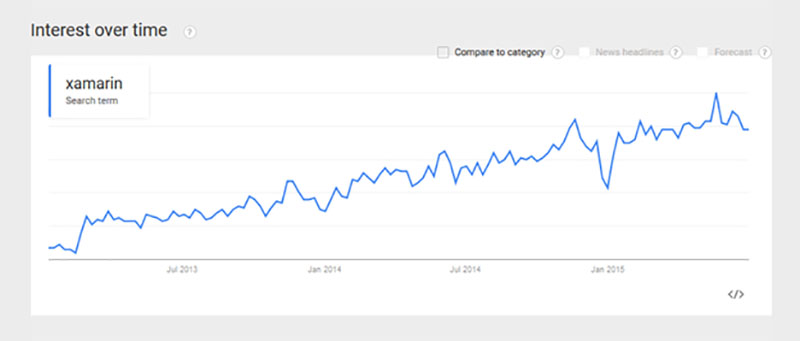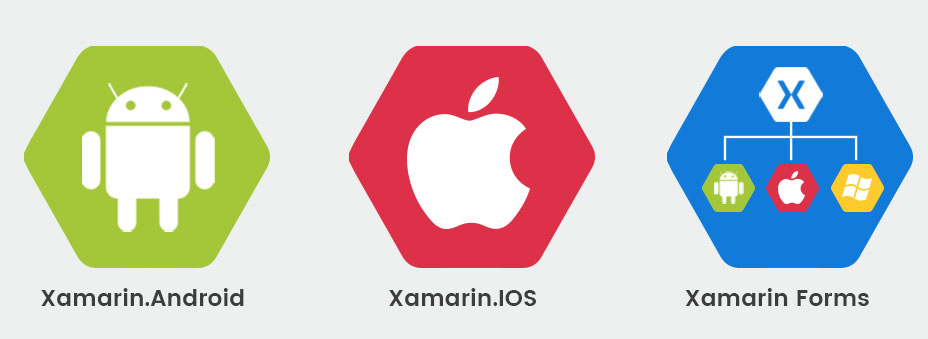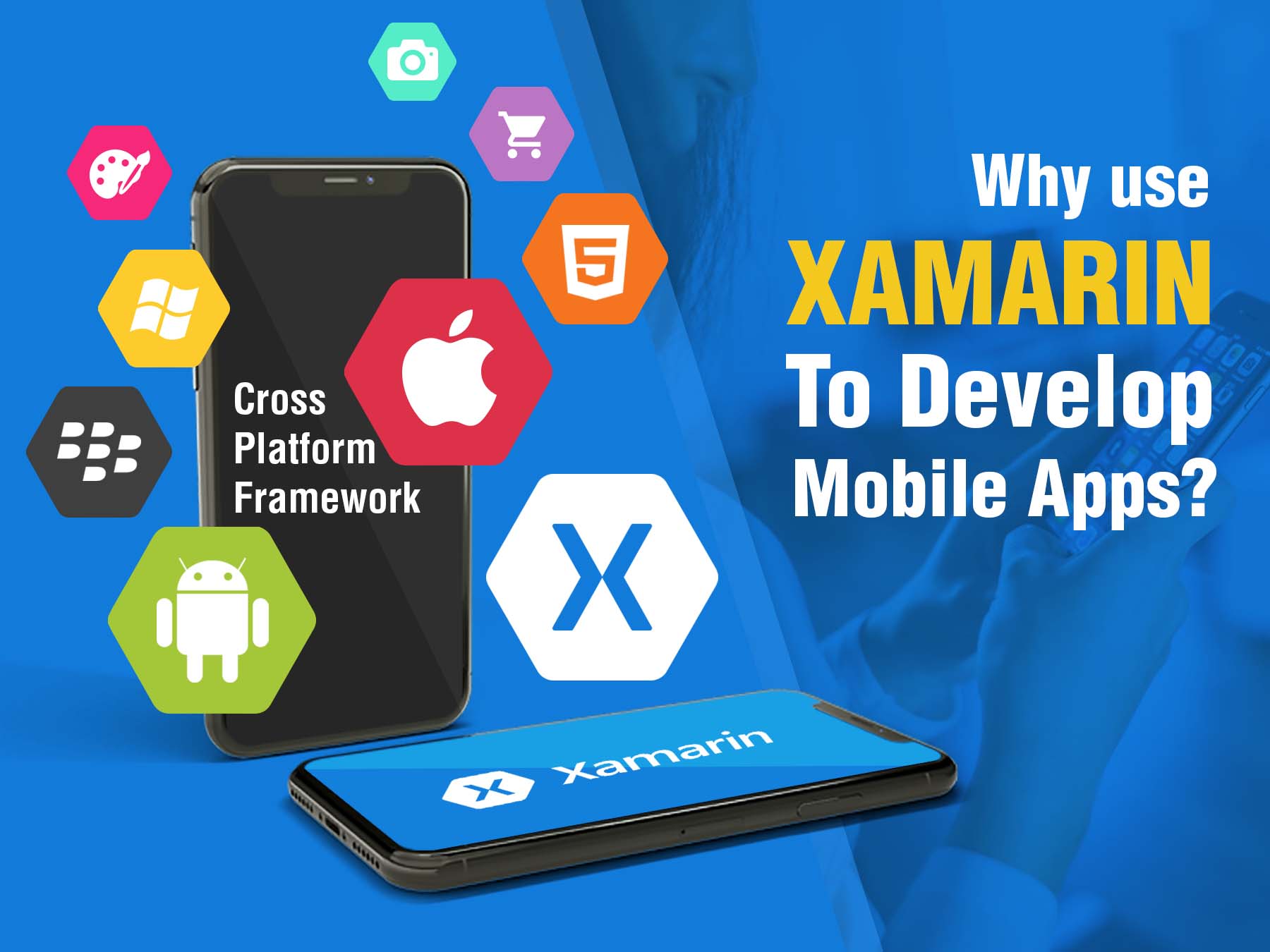Are you thinking about developing your business presence on Mobile? And looking for a team of dedicated mobile developers. In this article, we will give you a walkthrough on why Xamarin framework is the best for your mobile development needs. Xamarin is the latest tech tool for startup businesses everywhere that need a cross-platform mobile app.
What is Cross-platform mobile development?
Cross-platform mobile refers to the development of mobile apps that work on multiple mobile platforms. For example, a cross-platform mobile application runs easily on different mobile operating systems like Android, iOS, Windows, BlackBerry. There are many Cross-platform frameworks that exist such as Qt, Xamarin, Phone gap, Ionic, React Native to support cross-platform development. In this post below, We are going to talk about Xamarin in particular and the reasons to use Xamarin for cross-platform development.
Xamarin Introduction
Xamarin is a cross-platform framework for mobile app development that brings .NET and C# to both Android and iOS platforms. Xamarin is amazing in the sense that it is full .NET based and is able to produce true Android and iOS mobile apps concurrently.
Wikipedia defines Xamarin as Xamarin is a Microsoft-owned San Francisco, California based software company founded in May 2011 by the engineers that created Mono, Mono for Android and MonoTouch that are cross-platform implementations of the Common Language Infrastructure (CLI) and Common Language Specifications (often called Microsoft.NET).
Why Xamarin?
Xamarin Is Ideal for Cross-Platform Mobile App Development and the major reasons are listed below:
- Power of C# on mobile devices
- Open Source
- Native apps with native UI controls
- Native UI development
- Can share more than 70-80% of code across all major mobile platforms
- No JavaScript – truly compiled code
- Ability to leverage Visual Studio
- Many great C# libraries
- MVVM pattern
- Amazing support
- Powerful Mono .NET framework for developers
- Delivers high performance and excellent UX
- The most cost and time-efficient cross-platform framework for mobile app development.
- Compatible to develop Hybrid apps using portable razor framework
- Backed by Microsoft
- Support Smartwatch apps.
“We founded Xamarin more than [four] years ago with the mission to make native mobile development fast, easy, and fun and to help C# developers build beautiful mobile apps and reach billions of devices. We love the native iOS, Android, and Mac APIs, and we love C#.” – Nat Friedman, CEO and cofounder of Xamarin
The popularity of Xamarin
If you have not tried Xamarin yet, you are missing a great deal on the latest tech enabler in the industry. With the Xamarin framework, we can cover all major mobile platforms like Android, iOS, and Windows without diluting the quality and performance as a rule.
“Over 15,000 companies rely on Xamarin.” – Xamarin
Renowned companies like Cognizant, Bosch, Siemens, LEAP, 3M, Slack and Pinterest rely on XAMARIN for their mobile app development source


Two Approaches in Xamarin
Xamarin has two methods for building cross-platform mobile applications: Xamarin Forms – You can use Xamarin. Forms when you want to design your app one time which will be shared across all platforms with some minor code changes. Xamarin Native – You can use native when you want to design separate applications for each platform with the help of Xamarin.iOS, Xamarin. Android, Xamarin. Windows.

The Difference between Xamarin Forms and Xamarin Native

| Xamarin.iOS, Xamarin. Android & Xamarin. Windows | Xamarin Forms |
|---|---|
| Separate UI for each platform | Single UI for all platforms |
| Supports up to 70% code reuse | It allows more code sharing (90-95% code reuse) |
| The development cycle is a bit slower in comparison | The development cycle is faster |
| Need to learn all existing platforms specific native UI views | No need to learn all existing platforms specific native UI views |
| Xamarin Native has a large variety of UI and third-party components’ library. | Xamarin Forms has little third party components’ library. |
| Xamarin Native App development comparatively costs higher. | Xamarin Forms App development significantly reduces the overall cost |
| Xamarin Native app’s performance is the best. | Xamarin Forms performance is slightly slow |
| Xamarin Native is recommended where custom UI is more important than code sharing | Xamarin Forms is recommended where code sharing is more important than custom UI |
| Xamarin Native is best for apps with interactions that require native behavior | Xamarin. Forms are best for apps that require little platform specific functionality |
| Xamarin native has a stronger mechanism to clear the cache | Xamarin Forms have an unconvincing mechanism to clear the cache |
| Xamarin Native is used to creating complex and advanced UI | Xamarin. Forms are used for apps with no much constraints on the UI |
| Xamarin Native supports Non-Portable .NET Libraries | Xamarin Forms does not support some third party component libraries. |
| Xamarin Native apps are better suited for large quantity of data and it is also effective for frequent data update. | Xamarin Forms apps are not ideal for large quantity of data and not effective for frequent data update. |
| Xamarin Native is best for apps that require specialized interactions | Xamarin.Forms is best for apps that are data driven (listviews, data entry fields) |
Have a question on Xamarin Technology? Ask our Xamarin developers
Summary
Xamarin is an excellent powerful platform that supports Cross-platform mobile development at a fractional cost. Xamarin Cross-Platform Development has gained massive popularity during recent years. Xamarin platform makes a significant savings in development time, maintenance, and overall client costs. Apart from these benefits, Xamarin apps also deliver great performance and user experience. To find out whether Xamarin is the right platform for you, let’s have a quick conversation with our mobile development consultants. We build complete solutions, not just a collection of features. If you want to leverage the advantages of Xamarin to transform your startup business, drop a mail to us, and we will get in touch with you. Our Xamarin developers offer high technical proficient and customized service. Get in touch with GrayCell Technologies to Hire Xamarin developers for a robust and scalable solution.
Are you ready to experience and enjoy the benefits of Cross-platform Mobile Apps?
Contact us and let’s talk about your business







